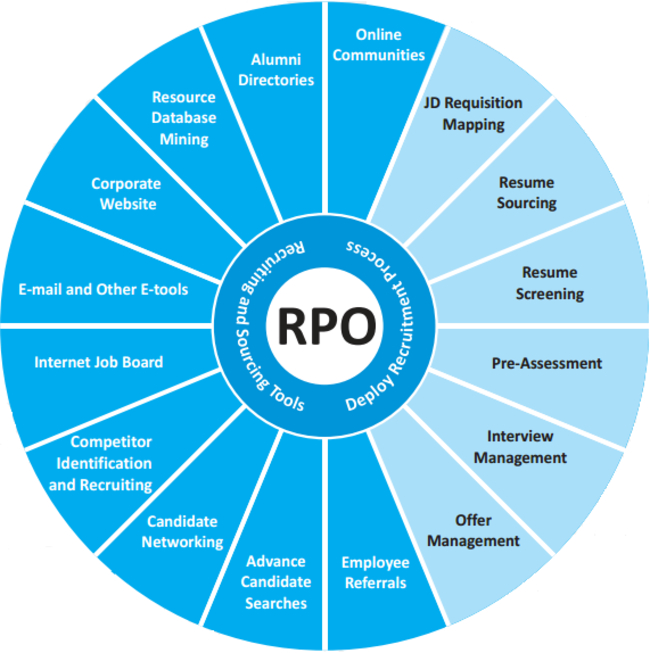What Is RPO?
Recruitment Process Outsourcing is a new way of getting the right talent for the job. The people involved in such recruitment run an RPO firm, wherein they will publish the jobs on behalf of the company, shortlist people, interview them, and pick the right candidate for the job. RPO has become more popular as companies have to invest less, compared to the routine recruitment process. RPO firms like https://rpo.techfetch.com/ have standard recruitment stages which they adhere to in finding the right talent. Let’s take a look at the different stages, types, and benefits of RPO.
Why Do Businesses Need RPO?
Earlier, it was considered a bad decision to delegate the entire recruitment process to a third party as it incurred many expenses and could not deliver good results. However, with RPO, things have started to changes, and businesses have realized the importance of RPO because of these reasons.
- RPO firms follow a clear recruitment structure and strategies that help them to hire the right candidate.
- When you give the recruitment job to the RP firms from your HR team, the latter can complete other HR-related jobs effectively and efficiently.
RPO firms give the best candidate to the company whose services can improve the business.
Common RPO Models
The RPO has different models which they have made based on different hiring needs. The common RPO models are-
Recruiter On-demand
This model is made for those companies whose hiring needs often change. Sometimes companies might need immediate hiring. In such circumstances, RPO will follow this model and give the company the right talent at the right time, saving a lot of money and time for the company.
Function-based Model
Also known as the Project-based model, this is the right one for companies that need people to complete short-term projects or jobs.
Full RPO
Full RPO is different from all other models as under this one, and the company gives the whole authority of recruitment to the RPO firm such that the firm will be serving as the company’s internal recruitment team.
Different RPO Services
The RPO services include-
- Workforce Planning
- Strategic Sourcing
- Hiring Manager Engagement
- Talent Engagement
- Pre-employment Screening
- Graduate Recruitment
- Candidate Management
- Compliance And Risk Management
- Recruitment Analytics Support
Different Stages Of RPO
Here are the different stages of RPO.
- Data Collection – This is the most important stage of RPO wherein the RPO manager will obtain details about the company’s current recruitment process, such as their interview forms, different trackers used, etc. Once they get the information, the firm will perform a stakeholder analysis.
- Process Mapping – After the careful analysis of the information received from the internal recruitment team, the RPO provider will identify the points that need to be amended and hand over the new process map to the RPO teams and hiring manager. This document can be used as training material for new recruitments.
- Change Management- When a new team starts to focus on their roles and responsibilities, a change management plan becomes necessary that outlines how the company will be handling the internal messaging for the onboarding of an RPO team.
- Training – For the success of the processes, every RPO team and company stakeholder will undergo training. The training aims to make everyone aware of the new hiring process, responsibilities, and technologies.
Benefits Of RPO
Here the benefits of Recruitment Process Outsourcing
- Scalable Solutions- The RPO believes in the principle of a flexible and scalable solution in which the business only needs to pay for what they want when they want it.
- Saves Time And Cost- RPO provides ensures to follow strict timelines to make a recruitment. This saves time and cost to the company.
- Hiring Quality- RPO providers follow a strict protocol to ensure that they hire the right candidate whose skills match the organizational needs.
- Analytics – RPO providers analyze the insights from every process stage as it allows them to take a correct decision.
The standard procedure of recruitment has become outdated. Companies now realize that following the outdated process is tedious and expensive, which might not offer great results. With the structured models of RPO, companies now believe that they will get the right talent with less investment and in no time.




